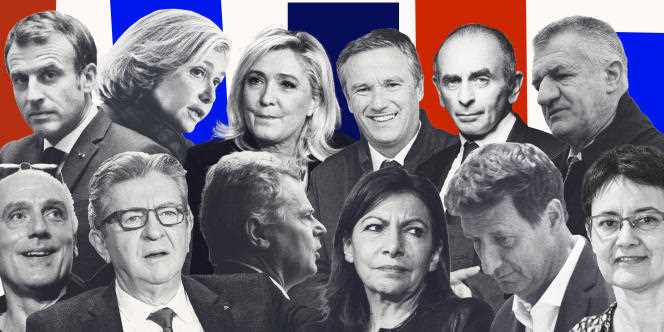Does the presidential campaign pass the door of companies? Is it a source of wait-and-see attitude regarding their strategic decisions? Jean-Marc Daniel, professor emeritus at ESCP Business School and author ofHistory of the world economy (Tallandier, 2021), and Eric Heyer, director of the analysis and forecasting department of the French Economic Observatory (OFCE), share their expertise on previous elections, as well as the parameters specific to that of 2022.
Do pre-election periods have an impact on business activity, decisions and investments?
Jean-Marc Daniel: It always depends on the context and the programs. Some elections are more marked, notably that of 1981: François Mitterrand went against capitalism, with a fairly traditional program of Keynesianism. The following elections were all built around the same discourse “my priority is employment”, but there was no ideological issue! No one questioned capitalism anymore. In 2022, we are again in an election where one of the two candidates likely to be elected is on a logic of rupture, not with capitalism but with European construction.
Eric Heyer: We do not always know what is linked to the presidential election and what is linked to the economic situation of the moment. In 1981, the business climate was rather down, was this linked to a fear of Russian tanks? Overall, we never see a break in activity just before the elections.
What indicators confirm this low impact?
HE: If we look at the financial markets, it is even quite the opposite. They fall during the six months after the elections, while they have progressed the six months preceding them! Uncertainty is never good for business, but uncertainty right before an election doesn’t affect the rate of employment or investment too much. It’s surprising, because, at the moment, we have global uncertainty, about the presidential election, about the legislative elections and, when we try to measure this uncertainty economically, it’s a very low level. The role of central banks is much more important, the fact of knowing whether they will rather do austerity or recovery…
J.-MD: Yes, our central bank is very international. In 1981, when François Mitterrand became the favourite, there were attacks on the franc, which intensified once the president was elected. Businesses suffered the consequences, as there was a hike in interest rates after the win, but that subsided after a few weeks. Today, the euro is in a block large enough to cushion the shock.
You have 51.32% of this article left to read. The following is for subscribers only.
